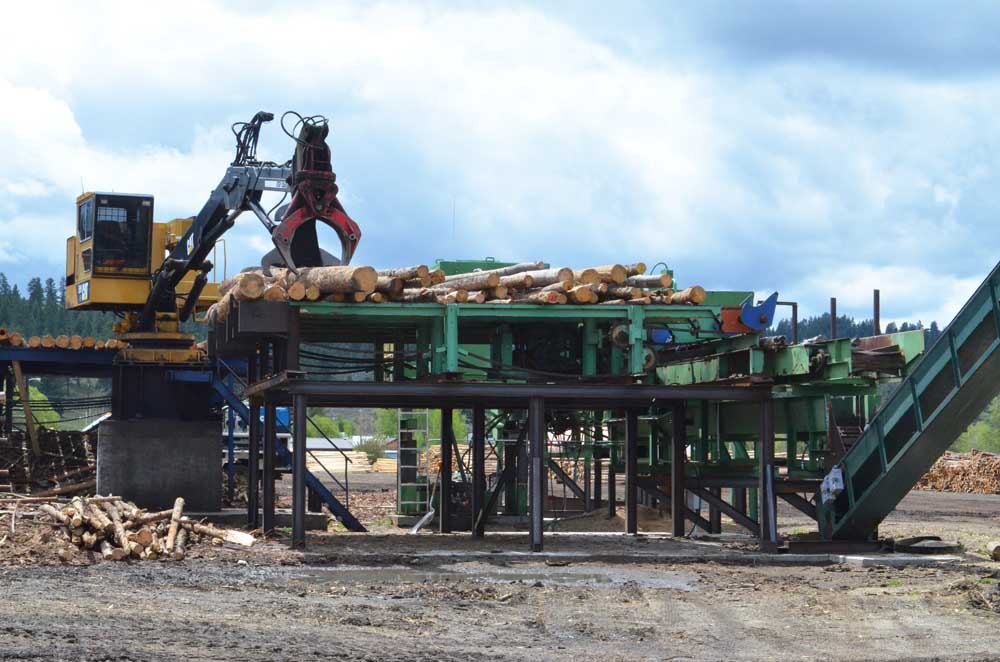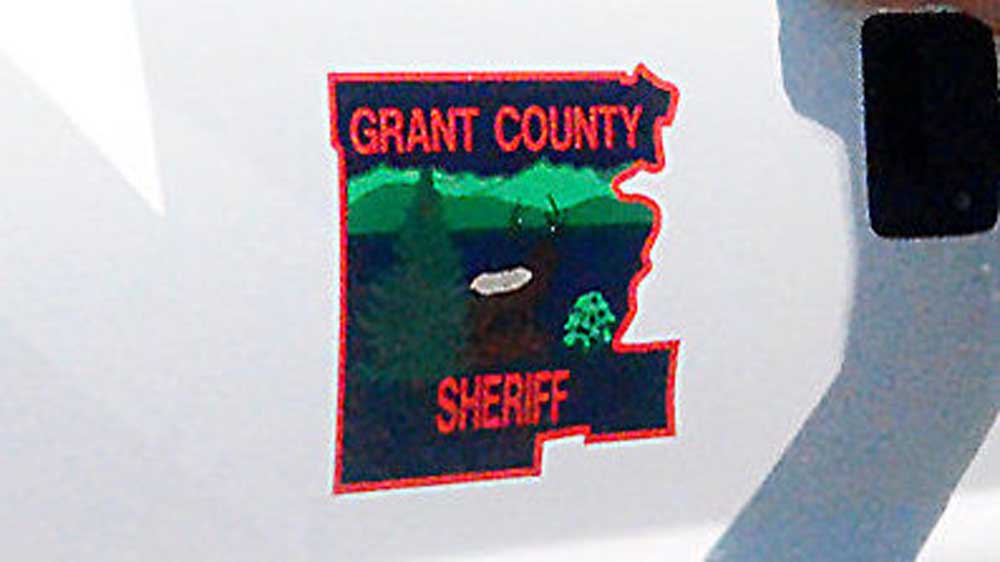Merkley to push for more aggressive forest management
Published 2:31 pm Thursday, May 27, 2021

- Raw logs ready to be milled at Iron Triangle’s post and pole plant in Seneca.
U.S. Sen. Jeff Merkley said this week that he will lobby the Biden administration to spend at least $1 billion more per year for logging, prescribed burning and other work designed to make federal forests in Oregon and elsewhere less vulnerable to wildfires during a future when climate change is likely to heighten that threat.
Trending
“Forests are the heart of Oregon’s identity,” Merkley, a Democrat, said during an online press conference on Thursday, May 27. “We have got to do a lot to restore our forests, to make much more substantial investments in forest management.”
Merkley said he hopes to push his campaign for more aggressive forest management from his position as chairman of the Senate Interior, Environment and Related Agencies Subcommittee, which he has held since February 2021.
Merkley convened an appropriations hearing on May 26 where he advocated for the federal government to boost spending on forest management.
Trending
Vicki Christiansen, chief of the U.S. Forest Service, the federal agency that manages much of the public forests in Northeast Oregon, testified before the subcommittee.
Merkley said one of his chief goals is to double federal spending, from $40 million to $80 million, for “collaborative” projects on national forests.
Those are projects that Merkley said are designed to bring together traditional “rivals,” such as environmental groups and timber industry representatives, to work together to promote work that both support.
Merkley said, in the 2018 federal farm bill, he included authorization to double spending on forest collaboratives — which he described as the “antidote to the timber wars.”
But the next step — indeed, the vital step — is to actually include that money in the Forest Service’s budget.
During the May 26 hearing before the subcommittee, Merkley urged Christiansen to include that money in the agency’s budget request for the fiscal year that starts Oct. 1, 2021.
“This is an amazing opportunity,” Merkley said.
Backlog of projects
Two collaboratives are underway in the Blue Mountains, one in the southern part of the range, the other in the northern section, on the Wallowa-Whitman and Umatilla national forests.
Last year, the U.S. Department of Agriculture allocated $2.7 million for the latter collaborative during the current fiscal year, which started Oct. 1, 2020.
Forest Service officials have said that the $2.7 million will help the two national forests start chipping away at a backlog of projects that are ready as soon as money is available.
Although the details of the work vary depending on the area of the Blue Mountains involved, the general concept is to cut some of the trees, primarily smaller-diameter ones, that are growing in higher densities than was historically the case in the northern Blues, Steve Hawkins, deputy fire staff officer for the Wallowa-Whitman, said in a 2020 interview.
Those smaller trees, most notably grand and white firs, have encroached over the past century or so in places that historically were dominated by ponderosa pines and tamaracks, in part due to the exclusion of fire, which historically killed most of the firs when they were relatively small.
Ponderosa pines and tamaracks, which generally grow in widely spaced stands rather than in thickets, are much more resistant to wildfires than the grand and white firs that have become much more prevalent over the past several decades.
Although Merkley promotes the additional $40 million for collaborative projects, his ultimate goal is much more ambitious.
He said he believes the federal government needs to spend at least $1 billion more each year on forest restoration work nationwide.
‘We have to do more’
One way to make that money available, Merkley said, is by ensuring the federal government does not return to the practice known as “fire borrowing.”
That term refers to the federal government transferring money from Forest Service and other agency budgets to cover firefighting costs, leaving less money for projects designed to reduce the size of wildfires and, thus, the cost to fight them.
Fire borrowing was necessary in several years over the past decade as millions of acres burned annually across the West.
Merkley said, although Congress ended fire borrowing in 2018, the changes made then will expire at the end of the current fiscal year — Sept. 30, 2021 — unless it’s reauthorized.
“We cannot go back to the fire borrowing of the past,” Merkley said.
During the press conference, Merkley recalled driving the length of Western Oregon in September 2020 following the fires that burned more than 1 million acres, destroyed towns such as Detroit, east of Salem, and killed 11 people.
“It was unforgettable to me,” Merkley said of the experience of driving for hours and never escaping the cloying smoke that persisted in much of Oregon for more than a week. “I’ve never seen anything like this.”
Merkley also talked about the 2020 fires during Wednesday’s appropriations hearing before his committee.
“Whether they have lost a loved one, business, or home to a wildfire, had to pack their most valuable belongings and anxiously awaited go orders, or were trapped inside by a thick blanket of hazardous smoke, nearly every family in the West has been impacted by wildfires in one way or another,” he said. “It’s impossible to thrive if your community is being ravaged by these blazes. That’s why any plan to boost America’s infrastructure, create jobs, and protect lives and our economy must include responsible forest management strategies that can help us stay ahead of wildfire risks. Anything less will be a grave mistake that will leave communities scrambling in the face of an emergency, threaten American lives and livelihoods, and require more taxpayer-funded recovery projects.”
Merkley said the threat of severe fire seasons is likely to increase due to climate change.
“Fire seasons are getting longer, forests and getting drier,” he said. “We have to do more on the forest management end.”
“Fire seasons are getting longer, forests and getting drier. We have to do more on the forest management end.”
—U.S. Sen. Jeff Merkley, D-Oregon
“Whether they have lost a loved one, business, or home to a wildfire, had to pack their most valuable belongings and anxiously awaited go orders, or were trapped inside by a thick blanket of hazardous smoke, nearly every family in the West has been impacted by wildfires in one way or another. It’s impossible to thrive if your community is being ravaged by these blazes. That’s why any plan to boost America’s infrastructure, create jobs, and protect lives and our economy must include responsible forest management strategies that can help us stay ahead of wildfire risks.”
—U.S. Sen. Jeff Merkley, D-Oregon








